
English Grammar (13)
An undeniable fact is that the English language could get confusing at some point or the other. There are numerous words that are spelled similarly yet have different meanings, some words are pronounced the same way, however, mean something completely different. These results in many of us often make a mistake, not only once but time and again. Therefore, it is crucial for us to get our head around these explanations, as getting familiarized to these words can prevent you from making errors once you recognize them along with their meanings.

Let's take a look at 10 of the most common mistakes made by individuals globally:
Error 1:
Accept v/s Except
Accept (verb) - To agree to take something.
Example- It is important for all of us to accept good advice.
Except (preposition/ conjunction) - To not include.
Example- Everyone was invited except Joanne.
Error 2:
Adverse v/s Averse
Adverse (adjective) – To be acting in opposition.
Example- She had an adverse reaction to the medication.
Averse (adjective) – To be opposed to.
Example- John is averse to taking critical risks.
Error 3:
Bought v/s Brought
Bought (past tense to the verb 'buy') – To buy something.
Example- He bought himself the motorcycle of his dreams.
Brought (past tense of the verb 'bring') – To bring something.
Example- Daniel brought his new girlfriend to the party.
Error 4:
Can v/s May
Can (verb) – To be able.
Example- Jacob can play the guitar well.
May (verb) – To be permitted.
Example- May we go to a movie today, mom?
Error 5:
Compliment v/s Complement
Compliment (noun) – A remark that expresses admiration/ respect.
Example- Ronda got the best compliment for her flawless style.
Complement (verb) – To make something more attractive when combined.
Example- I love the way Richard and Sue complement each other's personality.
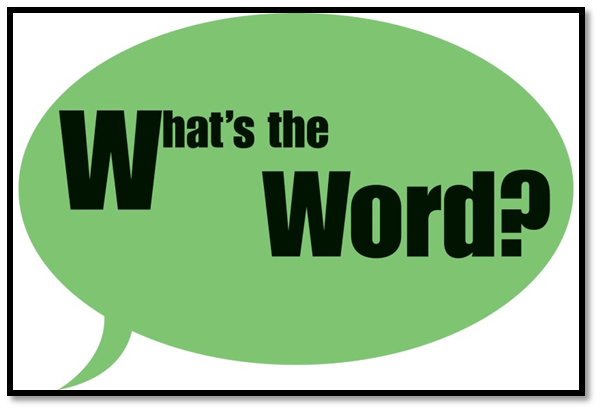
Error 6:
Dairy v/s Diary
Dairy (adjective) – Anything made out of milk.
Example- Dairy products are my favorite!
Diary (noun) - A written record of one's personal experiences.
Example- Megan has been maintaining her secret diary for ages now.
Error 7:
Each v/s Every
Each (determiners, which means words that are used with singular nouns to indicate quantity) - Refers to an individual as one.
Example- Each and every one dressed their best for my wedding.
Every (determiners, which means words that are used with singular nouns to indicate quantity) - Refers to a group lumped together as one.
Example- Always remember that every drop counts.
Error 8:
Beside v/s Besides
Beside (preposition) – At the side of/ next to.
Example- My house is located right beside her house .
Besides (adverb/ preposition) – In addition to/ also.
Example- Besides two dresses, Jin also carried a pair of denims.
Error 9:
Affect v/s Effect
Affect (verb) – To influence/ change something or someone.
Example- Don't bring her here, the chaos will affect her illness.
Effect (verb) – To have an impact on something or someone.
Example- The effect of smoke is extremely hazardous to health.
Error 10:
Loose v/s Lose
Loose (adjective) – Something that is not fixed properly.
Example- The wire of my phone's charger is loose.
Lose (verb) – To no longer possess something.
Example- With today's recession, anyone could lose their job.

English is a language full of twists and turns, however, you could get a holistic understanding of the same by enrolling in an English speaking course online. Doing so will not only improve your English communication skills but also bring about an improvement in your English grammar understanding.
About EAgeTutor:
eAgeTutor.com is a premier online English learning institute. eAge's world class faculty and ace communication experts, from around the globe, help you to improve in an all-round manner. Assignments and tasks based on a well-researched content developed by subject matter and industry experts can certainly fetch the most desired results for improving spoken English skills. In this age of effective and advance communication technology, online spoken English programs are the most effective and convenient way to learn English.
For further information on our online English speaking courses or to experience the wonders of the virtual classroom, fix a demonstration session with our tutor.
- By Monika Agarwal
Related Topics:
1. How to improve your grammar and comprehension for Entrance exams?
2. How to improve your vocabulary for entrance exams?
3. How to grab an internship opportunity?
4. How to effectively make a presentation?
5. Why Online Tutoring is Easy and Beneficial?
Common ‘Singular-Plural’ Mistakes – Part I
Written by Monika AgarwalOne of the most common mistakes in the English language is in relation to the singular/ plural agreement. Yes, of course the 'singular and plural' bit of grammar does get a little confusing at times. However, it is up to you to learn, understand and adopt the right way of communicating and writing in the English language. This article will focus on teaching you the same and clearing your doubts when using singular or plural in English. As a fact in English, there are exceptions to this rule as well and it does get puzzling, nevertheless, the most favorable route to attaining flawlessness in the singular and plural arena is by learning through examples.
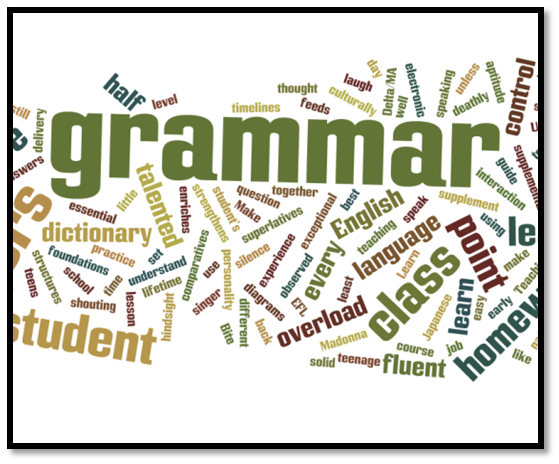
Singular= A word referring to one object.
Plural= A word referring to more than one object.
The below mentioned examples should give you a good indication of how singular and plural should be used.
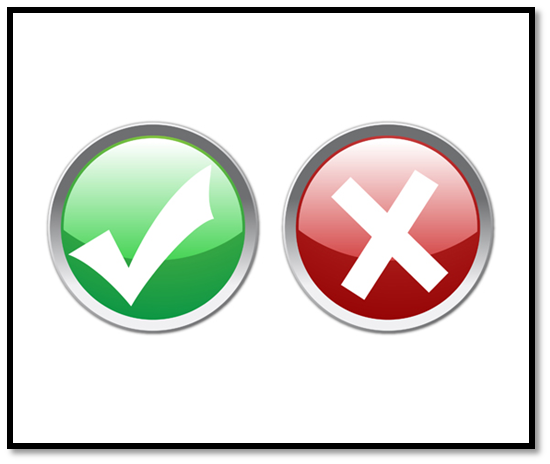
Here are the top 10 most common 'singular-plural' errors:
1. Are
Correct: There are numerous issues with the system.
Wrong: There is numerous issues with the system.
2. This
Correct: This is a critical error you've made.
Wrong: These is a critical error you've made.
3. Many of
Correct: Many of the times I have ignored his disgusting behavior.
Wrong: One of the times I have ignored his disgusting behavior.
4. Children
Correct: I have two great children.
Wrong: I have two great childs.
5. People
Correct: At first people get a wrong idea about my personality.
Wrong: At first peoples get a wrong idea about my personality.
6. Number
Correct: The number of times he has repeated the same statement is funny.
Wrong: The numbers of times he has repeated the same statement is funny.
7. Does
Correct: That does not mean that she's lying.
Wrong: That do not mean that she's lying.
8. Hair
Correct: Lately, my hair has begun to fall enormously.
Wrong: Lately, my hairs has begun to fall enormously.
9. Software
Correct: Rajat is a master in Linux and Windows software.
Wrong: Rajat is a master in Linux and Window softwares.
10. Life
Correct: That tornado affected so many lives.
Wrong: That tornado affected so many lifes.
Singulars and plurals are interchangeable depending upon the tense, the amount and the context of the statement. However, are you aware about the fact that some singulars are the same even in their plural version?
For instance:
SINGULAR PLURAL
1. Deer Deer
2. Fish Fish
3. Sheep Sheep
Similarly, some plurals remain the same in their singular form.
For instance:
SINGULAR PLURAL
1. Pajamas Pajamas
2. Spectacles Spectacles
3. Scissors Scissors
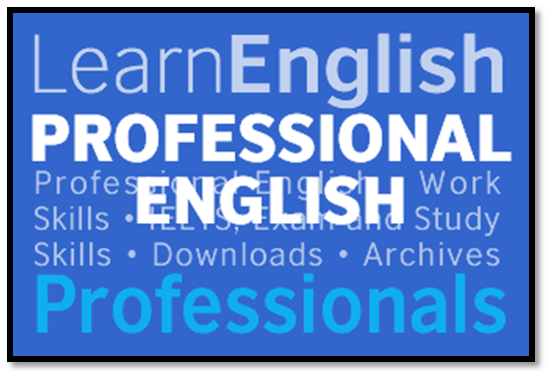
It does take a while before you gain confidence in speaking in fluent English. However, once you've managed to master the basic ground rules, it will definitely benefit you in the long run. You yourself will notice a significant change in your English communication skills as well as your written English for that matter. So, keep aside all your inhibitions of the English language and embrace this beautiful language with a sense of acquiring and learning more each passing day. In addition, if you wish to leave no stone unturned in your journey of learning English, you could enroll in an English-speaking course online. Doing so will help you cover all the minute details involved in English grammar, which will benefit you in your professional as well as personal life.
We shall discuss more on this topic in our next part. Stay tuned!
About eAgeTutor:
eAgeTutor.com is a premier online English learning institute. eAge's world class faculty and ace communication experts, from around the globe, help you to improve in an all-round manner. Assignments and tasks based on a well-researched content developed by subject matter and industry experts can certainly fetch the most desired results for improving spoken English skills. In this age of effective and advance communication technology, online spoken English programs are the most effective and convenient way to learn English.
For further information on our online English speaking courses or to experience the wonders of the virtual classroom, fix a demonstration session with our tutor.
- By Monika Agarwal
Related Topics:
1. Why Online Tutoring is Easy and Beneficial?
2. Who or Whom: Learn the Right Usage with Examples
3. What are words with similar meaning /opposite meaning to another word known as?
4. What are words that confuse you known as?
5. What are vowels and Consonants?
Let's begin this informative article by understanding what is an article in English? An article is usually considered a type of adjective. How? Well, just like an adjective modifies the noun, so does an article. The English language has two types of articles: 'the' and 'a'/ 'an'.

We call:
'the'= definite article
'a'/ 'an'= indefinite one.
Read on to understand the reason and get more familiar with articles.
English grammar needs practice and understanding to begin with. It is something that needs to be well-understood and mastered. For instance like in the case of articles. Many English students, more than often, make mistakes with articles such as 'a', 'an' and 'the'. You should be aware of a fact that the basic rule for using 'a', 'an' and 'the' does not depend upon the spelling of the word it is placed before; instead it depends on the pronunciation of the word.
Definite article 'the':
The definite article 'the' is made use of before singular and plural nouns when the noun is particular and specific.
For instance:
1. "The field was full of creepy insects that caught my attention on reaching there."
In this case, it is clear and evident that we're referring to and talking about a particular field and not a generic use of the noun. Hence, the prefix 'the'.
2. "It was the peacock at the zoo that held my attention throughout."
Here again 'the' is being used for a specific zoo and a particular peacock.
Indefinite article 'a'/ 'an':
The use of articles 'a' and 'an' mean the noun that they're supporting is indefinite. This means that it is referring to one among the group.
For instance:
1. "It was New Year's Eve and I really wanted to eat a warm pie."
Take note of the fact that a particular pie is not being spoken about.
2. "Can somebody please call a security guard?"
This means that you need any security guard from the lot irrespective of who or someone in particular.
3. "While I was on a walk, my mom scrambled me an egg for breakfast."
'An' egg refers to one egg from the dozen of eggs in the refrigerator. It does not specify anything in particular.
4. "My wish is to ride an elephant at the age of 75."
Here you could be referring to any elephant in general.
Understanding the use of 'a', 'an' and 'the':
In most cases, the article 'an' is used before words that begin with vowels. (a, e, i, o, u)
Use of 'an':
1. An apple
2. An elephant
3. An oven
4. An umbrella
5. An igloo
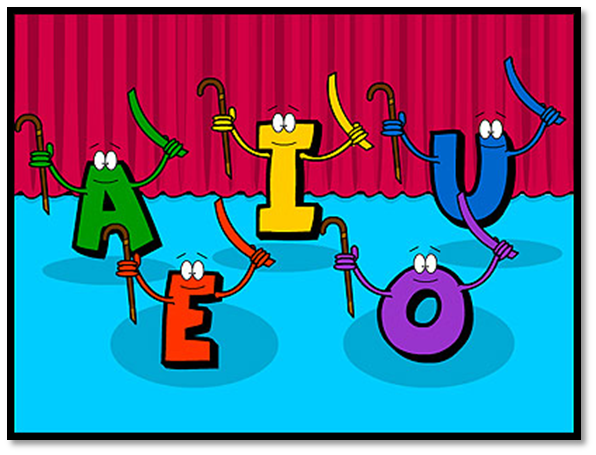
Use of 'a':
If a word starts with a consonant sound, use a.
1. A cat
2. A wish
3. A needle
4. A cart
5. A twig

Use of 'the':
We use 'the' to refer to nouns that have already been mentioned or when it is understandable what particular thing is being referred to. Therefore 'the' refers to things which are definite, specific or unique.
1. The World Bank
2. The Police
3. The security
4. The Russians
5. The movement
The above mentioned explanation is a quick run through on the appropriate use of articles. Sharpening your know-how about articles will enable you to speak in fluent English without making minute grammatical errors. Keeping your English communication skills at its polished best will develop an inner confidence in you. So, waste no more of your precious time and learn English Grammar through the online spoken English courses provided by eAgeTutor.
About eAgeTutor:
eAgeTutor.com is a premier online English learning institute. eAge's world class faculty and ace communication experts, from around the globe, help you to improve in an all-round manner. Assignments and tasks based on a well-researched content developed by subject matter and industry experts can certainly fetch the most desired results for improving spoken English skills. In this age of effective and advance communication technology, online spoken English programs are the most effective and convenient way to learn English.
For further information on our online English speaking courses or to experience the wonders of the virtual classroom, fix a demonstration session with our tutor.
- By Monika Agarwal
Related Topics:
1. How to Learn English Real Fast?
2. Why English is Considered an International Language?
3. Who or Whom: Learn the Right Usage with Examples
4. Why do We Need to Learn English?
5. What are words with similar meaning /opposite meaning to another word known as?
Learning English grammar could get a bit confusing at times. However, as said by a smart man, "Practice makes one perfect"! Just like in the case of mathematics, grammar too needs the special touch of practice. This article aims at focusing on those auxiliary verbs that could have you completely confused and baffled. Remember the fact, 'Know more, do more' and focus on those points that puzzles you the most.
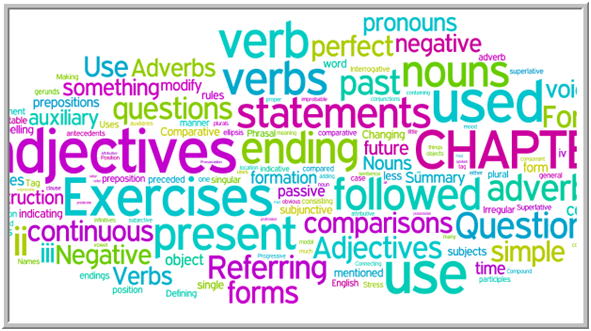
Auxiliary verbs (Could, Would, Should)
The terms 'could', 'would' and 'should' are auxiliary verbs, which mean their main function is to assist and complement the main verbs. These words individually could be termed as the past tenses of 'can', 'will' and 'shall' respectively. A fact is that even individuals that have a profound know-how of grammar get baffled at times when it comes to confusing auxiliaries like these. Therefore, it is crucial to be able to differentiate between the three so as to avoid using them incorrectly. To ensure you use these words in appropriate places, here are a few examples to help you understand the same better.

Simple examples of 'would', 'could' and 'should':
Would-
To ask questions:
1. Would you attend his wedding ceremony this evening?
2. How would she react according to you?
You also need to know that the word 'would' is more or less interchangeable with the word 'will'.
To make requests:
1. I would like if you could get me a few more slices of bread.
2. Would you please hand me that phone?
To talk about the past:
1. I would have helped you out, if I knew you were in trouble.
2. Things would have been different if Rita was present at the party.
Should-
To ask questions:
1. Should I contribute my share right way?
2. Do you think we should wear traditional outfits on Diwali?
To show obligation:
1. You should floss regularly to maintain dental hygiene.
2. English grammar is a subject that should be practiced more often.
To express what is likely:
1. Take the main road that should reach you faster than the highway I believe.
2. The subway should be empty today.
Could-
To ask questions:
1. Could I take a few more hours before sending you the article?
2. What could possibly be the reason behind her not working on her English communication skills?
To show possibility:
1.He is so talented; I feel he could do a lot better.
2.Clean the house fast, they could land up unannounced.
To express politeness:
1. That's not necessary, I could be wrong!
2. I could have overreacted at that moment, I'm sorry.
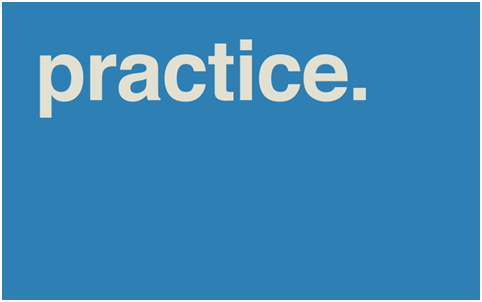
Learning is acquiring! Strap on your thinking cap and get into the learning process. The English language does get confusing at times, however, you can develop a grasp over it with maximum practice and concentration. Also, try and understand the fact that English is all about grammar and so to get a complete holistic understanding of this language, you need to learn English grammar to the optimum. The better your grammar, the better your spoken English communication skills. Happy learning folks!
About eAgeTutor:
eAgeTutor.com is a premier online English learning institute. eAge's world class faculty and ace communication experts, from around the globe, help you to improve english in an all-round manner. Assignments and tasks based on a well-researched content developed by subject matter and industry experts can certainly fetch the most desired results for improving spoken English skills. In this age of effective and advance communication technology, online spoken English programs are the most effective and convenient way to learn English.
For further information on our online English speaking courses or to experience the wonders of the virtual classroom, fix a demonstration session with our tutor.
- By Monika Agarwal
Related Topics:
1. Use the Power of Phrases to Improve Your Spoken English Fluency
2. How to Learn English Real Fast?
3. Why Online Tutoring is Easy and Beneficial?
4. Who or Whom: Learn the Right Usage with Examples
5. Do you know what are words with similar pronunciation but with different meaning/spelling known as?
How to improve your grammar and comprehension for Entrance exams?
Written by Monika AgarwalOver the years, English has evolved as the most popular and relevant language in entrance exams and in almost all spheres. In a competitive world like this, not having an appropriate know how of the English language will reduce your chances of growth and success. This article will guide you through the appropriate use of basic English and how to prepare and learn English for competition based entrance exams.
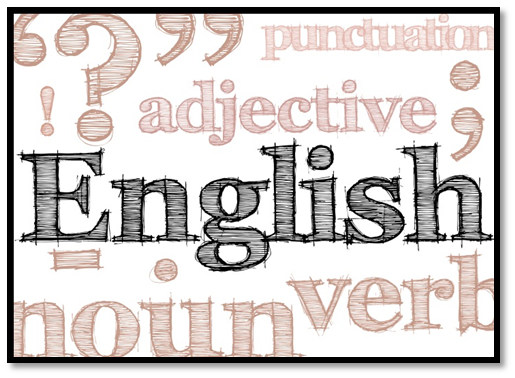
Entrance exams are one of the toughest to crack! And in terms of English, well, you need to have an appropriate hold on your vocabulary, communication skills as well as grammar. Let's study each of these one by one, which should give you a better understanding of the same.
1. Improving your vocabulary: You need to develop the desire to learn and acquire new words while improving your English communication skills. Building an exceptional vocabulary is completely in your hands. You can improve your vocabulary in a few months if you make earnest efforts toward using those words in your day-to-day communication. Be an active learner by reading English newspapers, watching and observing English channels and movies, trying to pick up words from there. You could also follow vocabulary lists having examples of usage as well.
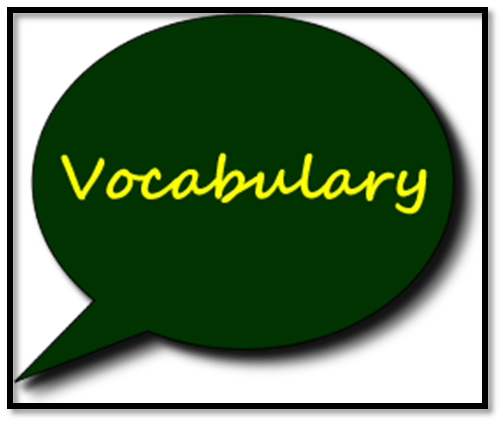
2. Grammar practice: Just like maths, grammar too can be improved simply by practice. It is crucial for you to learn and understand the basic rules and concepts by doing your share of research and study on the same. You could also sign up for an English training course to help you learn and strengthen your foundation in English grammar. Read up as much as possible on the principles and rules laid down and make sure to prepare towards acing in your grammar section of the examination.
3. Comprehension Tools: Understand the fact that to score well in comprehension, your vocabulary has to be flawless and impeccable! This is one section of the paper that you have the scope to score full marks in, if your vocabulary is well-updated and you manage to understand the passage given. Many a times, since this section is extremely easy, the examiner gives a passage that is dominated with complicated and unfamiliar words to raise the difficulty bar. Fear not and read more to improve your vocabulary as far as possible while studying English.

Let's now take a look at some of the tips that you could pay heed to while preparing in English for your entrance exams:
1. Only a good listener can be a good speaker! Follow that rule and you'll be fine in your personal interview.
2. If you want to answer all the questions asked to you in fluent English, while preparing for the exams 'read aloud'. Practicing this regime of reading aloud English from newspapers and magazines will exercise your tongue and enable you to pronounce correctly!
3. Always study to improve your vocabulary as doing so will help you converse without hesitation and fear. Understand and don't disregard the fact that you can express yourself only if you know enough words.
All the best and remember to maintain a positive attitude during the written examination and a confident smile during the one-on-one personal interview of the exam!
About eAgeTutor:
eAgeTutor.com is a premier online English learning institute. eAge's world class faculty and ace communication experts, from around the globe, help you to improve in an all-round manner. Assignments and tasks based on a well-researched content developed by subject matter and industry experts can certainly fetch the most desired results for improving spoken English skills. In this age of effective and advance communication technology, online spoken English programs are the most effective and convenient way to learn English.
For further information on our online English speaking courses or to experience the wonders of the virtual classroom, fix a demonstration session with our tutor.
- By Monika Agarwal
Related Topics:
1. Why Online Tutoring is Easy and Beneficial?
2. Who or Whom: Learn the Right Usage with Examples
3. Why English is Considered an International Language?
4. How to Learn English Real Fast?
5. What are words with similar meaning /opposite meaning to another word known as?
Have you wondered why it is ‘A banana’ while it is ‘AN apple’. One needs a thorough knowledge of pronouns, adverbs, tenses, adjectives, etc. in order to speak proper and correct English, as these all are a part of English grammar. Without a proper grip on grammar, it is impossible to be able to speak even a few sentences of English correctly. If you are still learning the English language, your chances of making grammatical mistakes are high, but do not lose heart. Learn from your mistakes and improve! With ample practice and correct guidance, one can easily master the language and its grammar.When you say you are ‘learning’ English, what do you mean? Memorizing new words, finding their meaning, and remembering them for future use – this technique is very old, and redundant. This exercise is a great way of improving the vocabulary, but is of no use if you wish to learn and improve grammar.Learning grammar is the key to speaking fluent English. It is a means by which you can give meaning and emotions to your words. Saying a simple ‘thank you’ is effective, but ‘I thank you from the bottom of my heart’ makes it sound so much better!You can learn some basic grammar by following these tips:
· Observe: We said that learning new words will do nothing for your grammar, but it can be of help if you observe how it is used and the words around it. This is a great way of learning the use of pronouns, adverbs, and prepositions. For example, if you read or hear a word like ‘argument’, observe how it is used: ‘It was the last time I got into an argument with you!’ this way you will remember that when you use ‘argument’, you have to use ‘an’ before it.
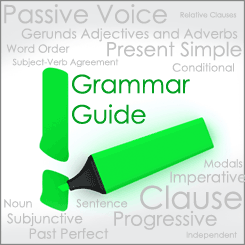
· Use grammar consciously: It is definitely not possible for anyone to know complete grammar, but one can always make an effort. Whenever you speak in English, make a conscious effort to use grammar effectively. It is common for people to overlook common grammar rules, especially when speaking. However, if you continue doing that, you might make it a habit, which will only harm your spoken English.
· Grammar exercises: There are many grammar exercises that you can use to improve and polish your grammar. From online exercises to books filled with such exercises, there are many ways you can learn grammar. Moreover, it gets even better; you can have fun along the way!
· Get a tutor: There is no better way of learning grammar than taking the help of a teacher who is a pro at it. Getting a tutor will also bring some amount of discipline to your learning process.
The best way of learning grammar – Enroll with an online program
Many online English learning programs are available to help people trying to learn English and grammar. Learning English online is extremely useful for people who do not have the time to go for classroom learning. Online English tutors offer a handy and convenient option of learning and improving spoken English.
The English language is full of confusing words – words that sound the same but are spelt differently! Of course, there meanings are poles apart, but that does not mean that people do not often get confused. We all have had our share of ‘oops’ moments, when we get confused between similar, but strictly not same, words.Such words are called ‘homophones’ – identifying and understanding such words is necessary, if you wish to speak correct and fluent English. The number of homophones is plenty; however let us discuss a few: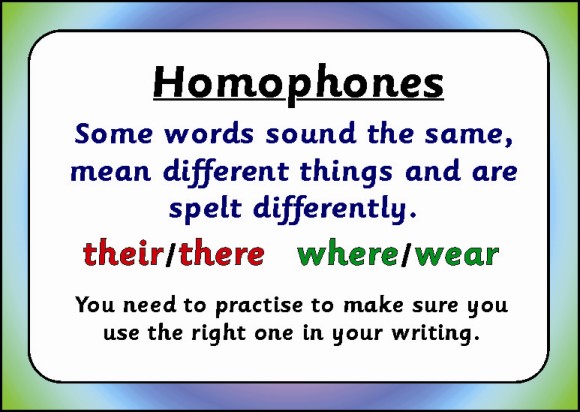
Affect-Effect: These words make to the top of this list because not only do they ‘sound’ the same but also their meanings are very close. That is why most people do not even realize that these are two individual words. The word ‘affect’ means to ‘have an influence’. For example, the whole office was affected due to the expense curtailment. On the other hand, Effect pertains to a ‘consequence’ – ‘The effects of the economic meltdown are devastating.’
Access-Excess: The sound of these words is same, and when you hear either of the words, it is difficult to deduce which one is being used. When you use ‘access’, it means that you have the referred subject ‘in your proximity’. For example, ‘Every place on Earth today has access to the internet’. Excess, this word means ‘abundance, surplus, or more than required’. One example for this is, “this bill is in excess to the clothes I purchased!”
Weather-Whether: We all know that weather is used in reference to climate, like ‘Delhi has an extreme weather’. Whether, sounds same as weather, but it is used in the sense of selecting an option from the many available – “I have not decided whether I will go to Delhi or not.”
Advice-Advise: These two words are variations of the same word. ‘Advice’ is the noun form, while ‘advise’ is the verb form. ‘He gives me good advice’ and ‘he always advises me nicely’, both these sentences mean the same thing, but which word you use depends on the sentence structure.
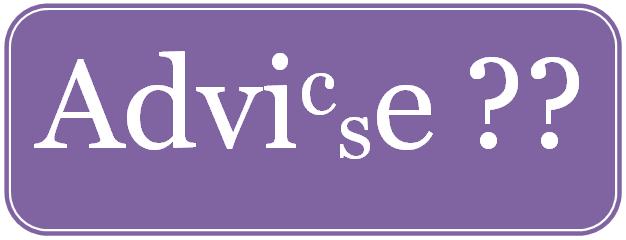
Waist-Waste: Can you make out the difference when you pronounce both these words? No? That is why it has made to this list. The only way you can understand which one is being used is by understanding the context. Waist is a body part, above the hips. Like if you are complimenting someone, you say, “You have such a toned waist!’ Waste is a term for useless stuff. The perfect example for this is ‘wastebasket’.
Farther – Further: The only difference between these words is an alphabet, and still these two words are completely different in meaning and usage. Farther refers to a geographical distance, which is measurable. For example, ‘don’t walk farther than that pole to reach her home.’ Further is a metaphoric work. For example, ‘Do not argue any further, it is futile.’ Here is an easy tip to distinguish between the two – farther has ‘far’, so you know that when you say farther, you are referring to distance.
· Lie – Lay: How often have you heard someone going, ‘I feel dizzy, I have been wanting to lay down for a while.’ Did you spot the mistake here? Chances are that many people won’t even realize that there is a mistake in the sentence. The mistake here is that the word ‘lay’ is used wrongly in the sentence. The word here should be ‘lie’. Lay is used only in reference to an object: lay down the carpet. Lie is a verb, an action. So, you can ‘lie’ down on the bed, while you lay down a mat!
Learning English is a process
Learning English is not an easy task, however, there are innumerable aides available to help you. Online English learning programs are easily available for people who wish to improve their spoken English. Learning English online is a beneficial tool for those who do not have time for classroom learning.
What are Question Tags?
Question tags are short question often found at the end of an affirmative or a negative sentence. In order to keep our conversations going, question tags can be used. Question tags are usually formed with a modal or an auxiliary verb and a personal pronoun.
EXAMPLE:

We can’t go to the market, can we?
While forming question tags few important things should be kept in mind.
- Affirmative sentences or positive sentences take negative question tags.
- Negative sentences take positive or affirmative question tags.
EXAMPLE:

Our principal is very strict, isn’t she?

She didn’t eat her breakfast, did she?
Let’s look at the above mentioned examples. The first example is an affirmative sentence and it uses a negative tag while the second one is a negative sentence that uses a positive tag.

Need of Tag Questions
Tag questions come at the end of a statement. They can also be called mini questions. We use tag questions when we want somebody to agree to what we are saying. We use them also to ask for confirmation or we want to make sure that whatever we are saying is correct. Tag questions mean something like Do you agree?
Example
We don’t have school tomorrow, do we? (We are asking for confirmation here)
Sachin Tendulkar is a great cricketer, isn’t he? (We want somebody to agree to what we are saying)
 Form and Examples of Question Tags
Form and Examples of Question Tags
FORM OF A TAG QUESTION:
Question tags are formed with modal or auxiliary verb and a personal pronoun. We will see that most of the time (the auxiliary verb or the main verb when in the form of be) which is there in the sentence is used to form the question tag. But there is one exception to this rule. Sentence that starts with I am is an exception to this rule. Such sentences will require an irregular tag question but sentences that starts with I am not take a regular tag question.
Example
I am sick, aren’t I? (Irregular question tag)
I am not sick today, am I? (Regular tag)
Few More Examples:
|
With Auxillary Verbs |
Positive Statement +Negative Question tag |
Negative Statement +positive question tag |
|
|
They have come to visit us, haven’t they? |
They weren’t present, were they? |
|
Without Auxillary Verbs |
She eats pizza, doesn’t she? |
They don’t like meat, do they? |
|
With Modals |
You will come with us, won’t you? |
They couldn’t talk to us, could they? |
Want to know more about “Question Tags” Click here to schedule live online session with e Tutor!
About eAge Tutoring:
eAgeTutor.com is the premium online tutoring provider. Using materials developed by highly qualified educators and leading content developers, a team of top-notch software experts, and a group of passionate educators, eAgeTutor works to ensure the success and satisfaction of all of its students.
Contact us today to learn more about our tutoring programs and discuss how we can help make the dreams of the student in your life come true!
Reference Links:
 What is Active and Passive Voice?:
What is Active and Passive Voice?:
Active voice is more common than passive voice. The voice that is often used is called active voice. In an active voice, the object receives the action of the verb while a passive voice is not used so often. The action of the verb is received by the subject in a passive voice. Now let us look at these examples. Whenever the focus is on the action rather than the agent ( i.e. who is performing the action) we use passive voice. In a passive voice, the agent is not so important.

EXAMPLE:
- Nancy likes pizza.
- Pizza is liked by Nancy.
The two sentences denote the same meaning. But the first sentence is in Active voice. In the first sentence the subject i.e. Nancy does the action. Hence the verb liked is in active voice. However, in the second example something is done to the subject. So the form of the verb helped is said to be in passive voice. Here it must be noted that when the verb is changed from active to passive voice the subject of the verb in the active voice (i.e. Nancy) becomes the object of the verb in the passive voice.

EXAMPLE:
- Somebody stole my purse.
- My purse was stolen.
Here the first sentence is in active voice and the second sentence is in passive. In the second sentence, the focus is more on the fact that the purse was stolen rather than who has stolen it.
When and why one should use passive voice:
When we use the active voice, we like to emphasize the agent i.e. one who does the action. In an active voice, focus is on the agent rather than the action. On the contrary, in a passive voice the focus is on the object of the action rather than the subject. Whenever you want your readers to pay more attention to the object rather than the subject or the agent, passive voice can be used. Passive voice can be used when the agent is unknown or irrelevant or when you talk about some universal truth.
Example:
- These paintings were made long time ago. ( We are not interested to know who made the paintings)
- My pizza was eaten. ( We don’t know who ate the pizza)
- The dues will be cleared. ( We are not interested about the agent)
It may become very exhausting and monotonous to read sentence after sentence of active voice. To get rid of this monotony, one can use passive voice. Passive voice can also be used to change your style of writing. But we should always keep in mind that active voice is more common than passive voice. So we should not avoid or ignore active voice.

Examples of Active and Passive Voice:
Some examples of active and passive voice are mentioned below:
|
|
ACTIVE VOICE |
PASSIVE VOICE |
|
SIMPLE PRESENT TENSE
|
|
|
|
|
|
|
SIMPLE PRESENT CONTINUOUS TENSE
|
|
|
|
|
|
|
PRESENT PERFECT TENSE
|
|
|
|
|
|
|
SIMPLE PAST TENSE
|
|
|
|
|
|
|
PAST CONTINUOUS TENSE
|
|
|
|
|
|
|
SIMPLE FUTURE TENSE
|
|
|
|
|
Want to know more about “Active and Passive Voice” Click here to schedule live online session with e Tutor!
About eAge Tutoring:
eAgeTutor.com is the premium online tutoring provider. Using materials developed by highly qualified educators and leading content developers, a team of top-notch software experts, and a group of passionate educators, eAgeTutor works to ensure the success and satisfaction of all of its students.
Contact us today to learn more about our tutoring programs and discuss how we can help make the dreams of the student in your life come true!





